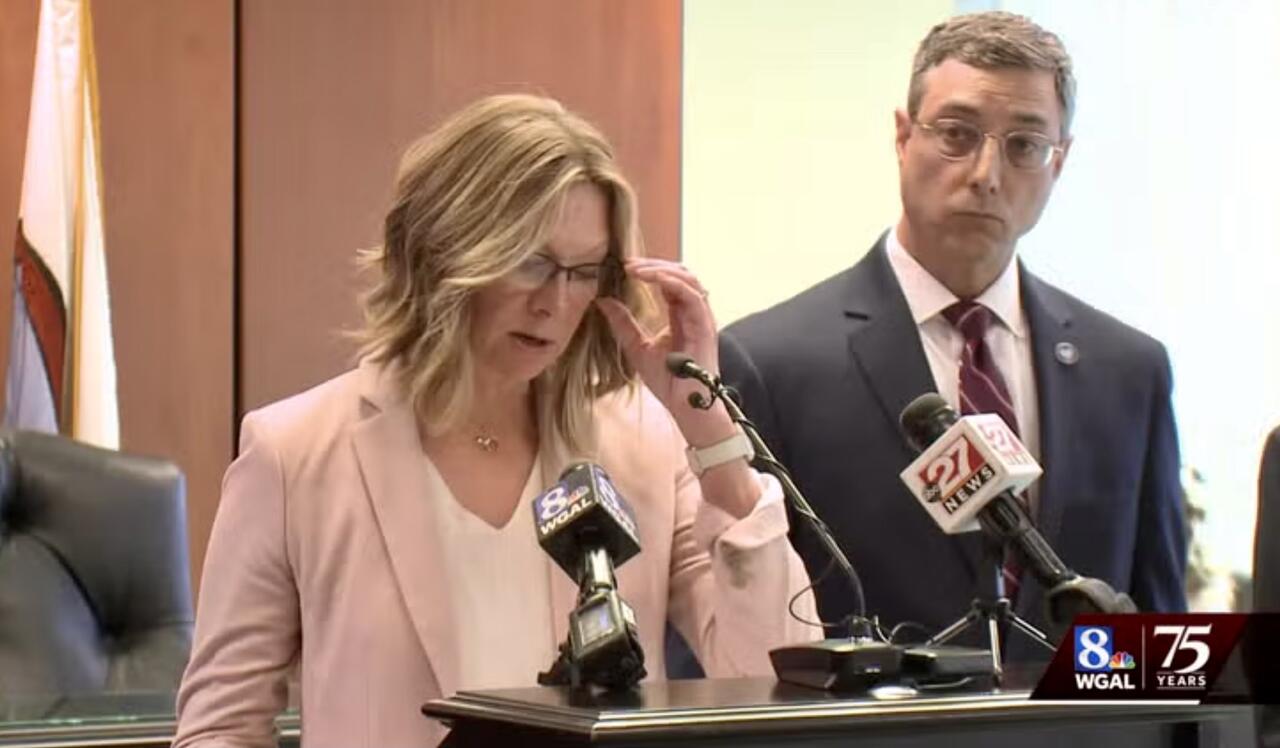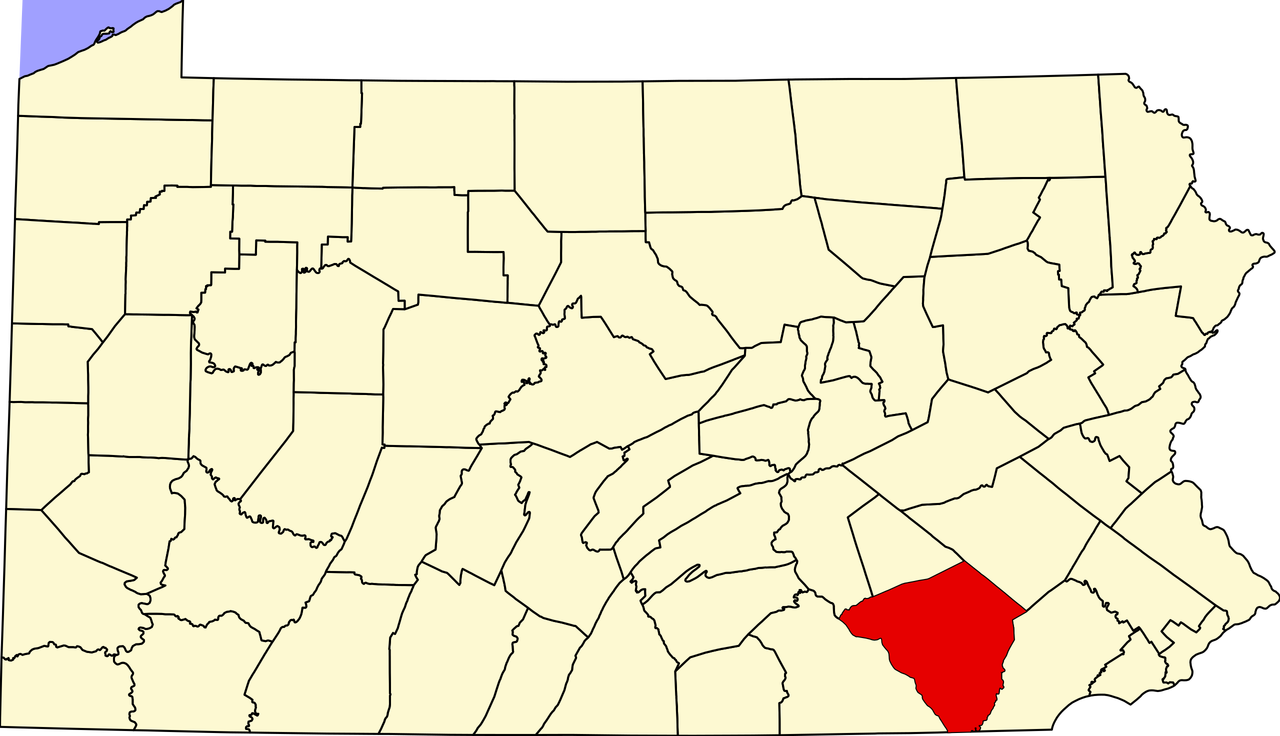Police in the 2024 battleground state of Pennsylvania are investigating some 2,500 voter registration forms that were submitted in two massive batches -- and investigators say that 60% of the forms they've checked so far are fraudulent. All of the ballots were submitted in Lancaster County, but two other counties are scrutinizing similarly suspect batches. While officials say it's the work of a "large-scale canvassing operation," they're not yet saying who's behind it.
The roughly 2,500 applications landed at or near Pennsylvania's Oct 21 registration deadline; some observers are speculating that the timing may have been tactical, with the intent of exploiting time-pressure administrators would be under ahead of the Nov. 5 Election Day. However, as they examined the massive heap of forms, application processors were immediately alarmed by what they saw:
- Multiple applications with the same handwriting and signatures
- Many forms filled out on the same day
- Applications for previously-registered voters whose signatures on the forms did not match the ones on file

That prompted a police investigation, and Lancaster County detectives soon confirmed many of the applications were fraudulent. Indications of fraud included:
- Inaccurate addresses
- False personal identification information
- False names
- Names that didn't match the Social Security Number on the form
In many cases, forms had accurate data, but the supposed applicants told detectives they had neither requested nor completed the forms, and confirmed that the signatures were not theirs. In all, 60% of the applications that have been vetted so far were found to be fraudulent.
"It's believed that the fraudulent voter registrations are connected to a large-scale canvassing operation for voter registrations that date back to June," said Lancaster County District Attorney Heather Adams in a Friday press conference. "The majority of applications received are dated August 15 and after. Those canvassing for voter registrations were employed and paid to obtain voter registration applications."

Adams declined to provide details about the canvassing organization, or the names of individual suspects. The fraudulent forms included registrations for both Democrats and Republicans. However, "for the general election, [the party affiliation of a bogus registration] really wouldn't matter," noted Adams. She did note that the canvassing operation primarily took place at shopping centers, parking lots, parks, grocery stores, sidewalks and businesses. The fraudulent activity took a variety of forms, from completely bogus applications to ones where a real voter had started registering but then decided not to move forward, only to have an application submitted for them anyway.
"Forgery of an application, which we have seen evidence of, would be a felony of the third degree punishable by up to seven years in prison and a $15,000 fine," said Adams, adding that one provision of the legal code would also enforce a 10-year loss of voting privileges.
Adams said they had all available detectives assigned to the case, who are working under pressure of the approaching Election Day. "[The fraud] appears to be an organized effort at this point," she said, and noted that two other Pennsylvania counties are investigating similarly suspicious batches of registration applications. She declined to name them, but the Berks County DA told the Philadelphia Inquirer "We believe we have some and will be looking into them." Pennsylvanians can check their own voter registration status at this link.
"The description of paid canvassers approaching voters on the streets of Lancaster City and mentioned boroughs does not meet the description of GOP and affiliated campaign volunteers,” Lancaster County GOP chair Kirk Radanovic told Lancaster Online. In a more narrowly-worded distancing from the alleged crimes, vice-chair of the Lancaster County Democrats said, "We have no reason to believe it was affiliated with any Democratic candidate’s campaign in the county.”
Most of the 2,500 applications were submitted in the name of people who live in the City of Lancaster, the Keystone State's 10th-most populous city. Per the 2020 census, about 40% of its 58,000 residents are Latino, 39% white, and 13% black.
Florida State University election law expert Michael Morley told the Inquirer that canvassing operations that center on per-application payments and quotas incentivize bogus registrations. However, he says it's rare for those registrations to culminate in fraudulent votes. "Even if it gets through, that’s sort of the end of the line. It’s not part of a bigger picture plot to steal the election,” he said.
With its 19 electoral votes, Pennsylvania is the biggest prize among the seven swing states that also include Georgia (16), North Carolina (16), Michigan (15), Arizona (11), Wisconsin (10) and Nevada (6). In 2020, Joe Biden officially won the state by only 80,555 votes out of more than 6.8 million counted statewide. Two million of Biden's 2020 Pennsylvania votes came via mail, compared to just under 600,000 for Trump.
The revelation from Lancaster County comes in the same week that at least a dozen Mesa County, Colorado ballots were found to have been stolen and mailed in -- and three of them are going to be counted anyway. However, despite that and the far bigger story now unfolding in the most valuable swing state, please repeat the establishment mantra: Organized voter fraud is just a right-wing conspiracy theory.

No comments:
Post a Comment
Note: Only a member of this blog may post a comment.